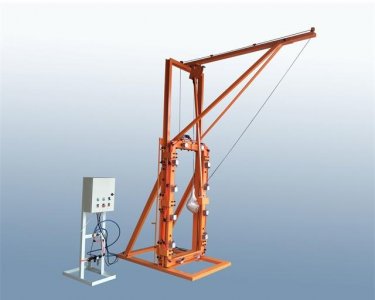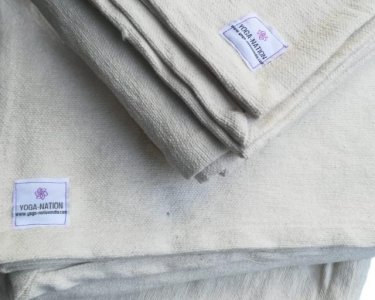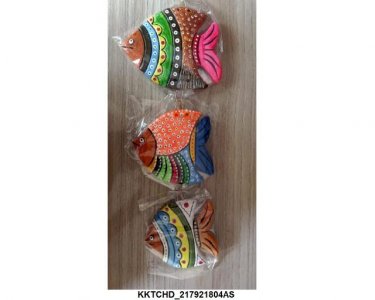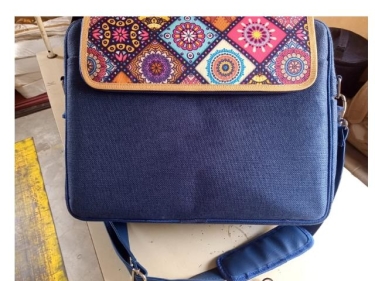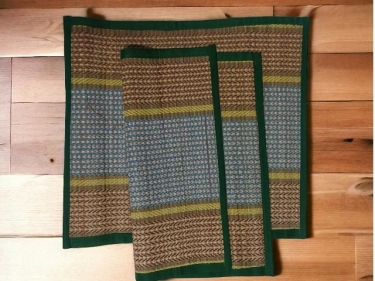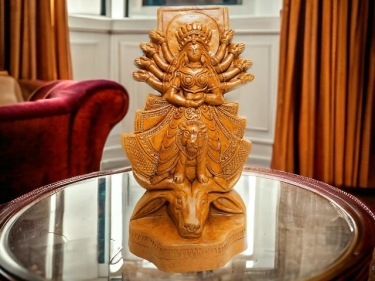Search Results for "brunei" in "Brunei" on Export Portal
Active Filters
-
Keywords:
-
Country:
- Clear all
New Search
Couldn't find the product you want?
Fill out this form to request the product.
Exports

Brunei has a wealthy economy, despite its small size. It is mixed by foreign and domestic entrepreneurship, by government regulation, by welfare measures and the village tradition. Crude oil and natural gas production account for 70% of GDP.
The national air carrier, Royal Brunei Airlines, is trying to develop Brunei as a modest hub for international travel between Europe and Australia/New Zealand. Central to this strategy is the position that the airline maintains at London Heathrow Airport. It holds a daily slot at the highly capacity-controlled airport, which it serves from Bandar Seri Begawan via Dubai. The airline also has services to major Asian destinations including Shanghai, Bangkok, Singapore and Manila.
Next to crude oil and natural gas, Brunei manifests in different other types of productions. The main industries are cement production, garment making, production of pre-cast concrete structures, mineral water, canned food, dairy products and publishing and printing. Brunei is rated 59 out of 185 countries by the World Bank for ease of doing business, a ranking based on how conducive the regulatory environment is to the opening and operation of a local firm.
About 167,000 barrels (26,600 m3) of oil are produced every day, making Brunei the fourth-largest producer of oil in Southeast Asia. Producing approximately 25.3 million cubic metres of liquified natural gas per day, makes Brunei the ninth-largest exporter of the substance in the world.
Brunei borders with Malaysia. The top export partners of Brunei are Japan, South Korea, Australia, India and Vietnam.
The top exports of Brunei are petroleum gas, crude petroleum, acyclic alcohols, jewellery and diamonds. The minor fields consist of machinery, metals, instruments, textiles, foodstuffs and chemical products.
Customs requirements of Brunei
Brunei Customs Contact Information
Website: http://www.mof.gov.bn/index.php/customs-import-duty
E-mail: info@customs.mof.gov.bn
Telephone: +673-2382333 / +673 238 0999
Address: Royal Customs and Excise Department Ministry of Finance Commonwealth Drive Bandar Seri Begawan BB3910 Negara Brunei Darussalam
Brunei is a country located in the southeastern Asia close to the Australian continent. The country shares borders with Malaysia and has an opening to the South China Sea. It consists of two territories apart, but very close to each other. Brunei has recently announced that all tariff barriers with the ASEAN (Association of Southeast Asian Nations) will be removed by 2015. The country is a member of the World Trade Organization (WTO) and of the Association of Southeast Asian Nations (ASEAN).
Export/Import Requirements
Brunei has a very low ad valorem tariff for imported rates of 2.5%. The country has a low tariff regime and no personal income tax. Company tax is 55 per cent for the two oil and gas companies (Brunei Shell and Jasra Elf) and 30 per cent for other companies.
Brunei is a member of the Association of South East Asian Nations (ASEAN). Preferential rates are applied to imports from other ASEAN members.
Brunei Food traders and importers are required to comply with the Brunei Public Health (Food) Act, besides meeting the food import requirement whenever importing consumable items.
Valuing your products
The value for assessment of import duties is based on the national concept of value. Valuation is based on the Brussels Definition of Value, i.e. based on price which an importer would give for the goods on a purchase in the open market inclusive of freight, Insurance, commission and all other costs, charges and expenses incidental to the purchase. Assessed value is therefore based on Carriage, Insurance and Freight (C.I.F) declared in invoice and are checked against value dockets, price lists and /or expert opinion.
Clearing imports
Within 24 hours after the arrival of a vessel, the master or agent of the vessel is required to present the following documents to the proper Customs Officer: Port Clearance, Inward Manifest, Crew List, Ship Stores List and all other necessary documents pertaining to the voyage.
The inward manifest, in the prescribed form must be certified by the master or agent of the vessel and it shall contain particulars on:
- Marks, numbers and contents of each package; name of shippers, names of consignees; weight
measurement; etc;
- A separate transshipment inward Manifest should also be provided when necessary;
- For goods by air, a certified inward manifest of an arriving is also required by Customs.
Handling of goods
Cargo can only be unloaded at prescribed ports of import and export and landing places approved by the Controller of Customs:
- By Sea, at such prescribed ports an approved landing places
- By Air, at a Customs Airport
- By Road, Via Customs Check Point
Before any cargo can be unloaded, transshipped, or removed onto another vessel, permission must be obtained from a proper Customs Officer.
Declarant
Goods may be declared by the owner or importer or an agent appointed by the owner or imported an approved by Customs. The declarant is responsible for the accuracy of the particulars of the declarations and for the payment of Import Duties.
Documentation
Prior to importing of any restricted goods, a permit (A.P) must be obtained from Customs. An applicant for such permit must fill in the prescribed form in quadruplicate and submit it to the Controller of Customs.
All goods, whether they are dutiable or not, must be declared in the prescribed from and submitted to the Customs where the goods are to be imported.
Declaration should give full and true account of the number of packages, cases description of goods, value, weight, measure or quantity and country of origin of the goods. Four copies of the declaration should be made.
The declaration must be supported by the following documents:
- delivery order
- original invoices
- packing list
- all other documents such as certificate of origin, Import licences, and insurance papers which may be required by a proper Customs Officer.
Dutiable goods may be move from one place to another within the State with the permission of the Controller of Customs and such movement, when granted, must be accompanied or covered by a Local Permit issued by a proper Customs Officer.
Amendments and withdrawals
Amendments and withdrawals of declaration will be allowed. These should be made in writing stating legitimate reasons.
Declaration of goods imported
Before goods can be cleared from Customs control, the owner or importer of the goods must submit a declaration to Customs on prescribed forms.
Goods deposited in a Customs control, the owner or importer of the goods must submit a declaration to Customs on prescribed forms.
Goods deposited in a Customs warehouse are required to be cleared within the following specified period:
- perishable goods shall be cleared forthwith, otherwise Senior Customs Officers may sell such goods
- inflammable or dangerous goods shall be cleared within 14 days of the date of deposit
- other goods shall be cleared within six months. A Senior Officer may permit any goods to remain deposited for such further periods of not less than one month at a time and not exceeding 12 months on the whole
- delivery order
- original invoices
- packing list
- all other documents such as certificate of origin, Import licences, and insurance papers which may be required by a proper Customs Officer
If goods are not cleared within the specified time and the warehouse rent in respect of the goods has not been paid, a Senior Customs Officer may arrange to sell such goods by auction. The proceeds of the sale of any such goods shall be applied to the payment of any Customs duties, warehouse rent, port dues and rates and other charges which may be due in respect of such goods, and the surplus, if any, shall be paid to the owner of such goods.
Examination
Examination is carried out after the declaration of goods has been accepted and duties have been collected.
Goods for examination must be produced by the importer or the importer’s agent at prescribed places during the normal working hours. If an importer or the importer’s agent requests his goods to be examined outside the normal working hours, he has to pay overtime fees to Customs.
Examination is carried out in the presence of the importer or the importer’s agent. He will be responsible for opening, weighting, sorting an marking of goods and all other necessary operations as directed by a proper Customs Officer.
Examination is carried out to the satisfaction of a proper Customs Officer. He may, as his duty requires, take samples of any goods or cause such goods to be detained for the purpose of ascertaining whether or not they are dutiable.
Clearing export
General information:
The owner of the goods or the agent who has been approved by Customs may declare the goods and must be responsible for the accuracy of the export declaration.
The export declaration must be made in quadruplicate and must be accompanied by related documents (i.e. export licenses and invoices).
Documentation
All goods that will be exported both dutiable or not must be declared in the prescribed form. The declaration form must be completed with detailed information as follows:
- Name and address of the exporter
- Name and address of the consignee
- Name of the vessel, voyage number and destination
- Particulars of goods, mark and numbers
- Country of origin of the goods
- Date of departure
- Commodity coding
- Value of the goods
- Signature of the exporter
Goods with prohibition, controls and restrictions
Importation and exportation of dangerous drugs such as opium, heroin, morphine, and psychotropic substances such as LSD, DET, DMT, DOM, mescaline, barbiturates and amobarbital are strictly prohibited. The Misuse of Drugs Act 1978 imposes severe penalties, including the death sentence for possession, consumption, manufacturing and trafficking of drugs.
Genuine import of legitimate drugs or medicines including poisons should be covered by a license and permit issued by the Ministry of Health. Information and exportation of certain goods requires a license or permit from the appropriate authorities in the State.
Import documents
- Bill of lading
- Commercial invoice
- Customs Import Declaration
- Packing list
- Shipping Delivery Order
- Technical/Health Certificate
- Export documents
- Bill of lading
- Commercial invoice
- Customs Export Declaration
- Material safety data sheet
- Packing list
Import and Export procedures
Importers and exporters may follows the following 5 steps:
Step 1: Register at RCED / appoint a registered agent
Every company or agents/ forwarders must be registered with the RCED for them to be easy dealing with the RCED.
- Applicant must submit a complete application form to the Customer Services Counter of RCED Headquarters, Jalan Menteri Besar
- Registration is free of charge
- Documents needed for registration
- A copy of the Company’s Registration Certificate
- A copy of Applicant’s Smart Identity Card
*Individual registration is not compulsory however customers (traders) are advised to make use of the services of Customs agents (forwarders).
Step 2: Apply Permit for Controlled Items
What is meant by license or permit
- License or Permit is a verification or approval given/ issued by the relevant Government Department/ Agency responsible for the commodities before importation.
How to apply license/ permit?
- Written application or completed form (subject to the requirement of the Department/ Agency) must be submitted to the Department/ Agency responsible for such prohibited and controlled commodities.
Any other additional requirement
- There are some prohibited or controlled commodities that require A.P (Approval permit) issued by the RCED other than license/ permit issued by the relevant Government Agency before imported or exported.
Step 3: Online Declaration
Every person arriving Negara Brunei Darussalam shall declare all goods in his possession, either on his person OR in any baggages OR in any vehicles to proper officer of Customs for inspection and clearance.
If failed to do so, such goods shall be deemed to be uncustomed goods and it is an offence under Customs Order 2006, if convicted, imprisonment OR fines can be imposed.
All imported goods should be declared to RCED through online system (eCustoms) or Brunei Darussalam National Single Window (BDNSW) except for the following goods;
Passenger hand baggages or personal effect on arrival.
Goods arriving by post except for dutiable goods.
Customs Declaration should give full and true account of the number of packages, case description of goods, value, weight, measure or quantity, and country of origin of the goods.
Main documents required to be listed as reference in the Customs Declaration are as follows:
- Commercial Invoice
- Air Waybill or Bill of Lading
Step 4: Payment of Dutiable Goods
Once the customs declaration had been approved, duties and other charges can be paid at Customs Counter or via an online payment.
Step 5: Inspection and Clearance
The approved Customs Declaration may be presented to Customs Officers on duty at relevant Customs Branches (entry point), together with any other supported documents for examination/ inspection and release of goods.
Source:
https://en.santandertrade.com/international-shipments/brunei-darussalam/trade-profile
http://www.intracen.org/country/brunei-darussalam/#sthash.qHN8dn47.dpuf
http://www.asean.org/communities/asean-economic-community/item/brunei-darussalam-6













